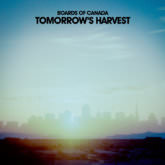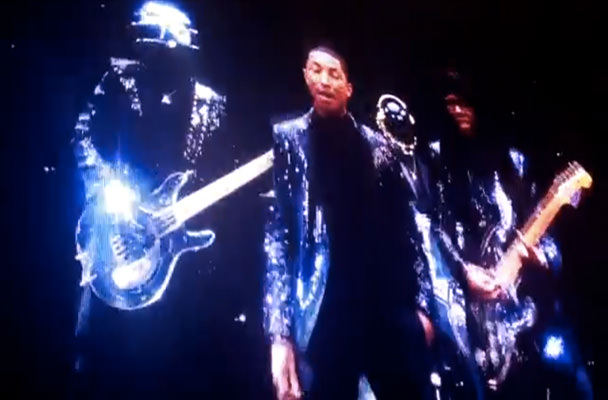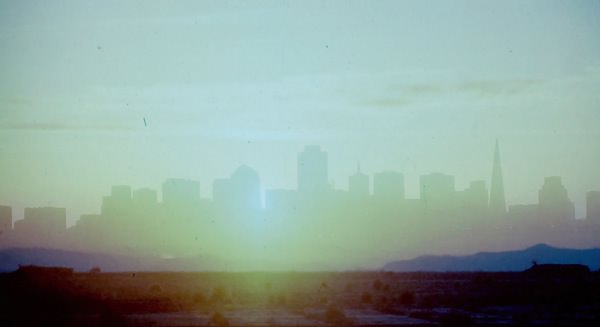The treasure at the end of the hype trail – Boards of Canada to live stream Tomorrow’s Harvest later today.
For electronic music, 2013 is shaping up to be the year of the hype campaign, with two acts taking centre stage. Daft Punk and Boards of Canada are both rightly revered for their musical mastery. They’ve also mirrored one another in their relatively sporadic release history – 1997/8, 2001/2, 2005, and both now emerging after a hiatus of nearly a decade – Daft Punk with the ubiquitous promo campaign for Random Access Memories and BOC with the slightly more low-key but equally hyped treasure hunt for Tomorrow’s Harvest.
 So what is it about these duos which has made them so successful at generating hype, and is it the shape of things to come?
So what is it about these duos which has made them so successful at generating hype, and is it the shape of things to come?
Spin‘s Philip Sherburne argues that Daft Punk can secure such hysteria and proliferation “because they’re freaking Daft Punk”. The success of their marketing relies not only on talent, but on their existing popularity. Their sphere of influence extends beyond dance circles to a mainstream pop audience. The campaign of billboards and festival exclusives has worked to galvanise that mass recognition. The easily marketed ‘robot’ image helps too, of course.
Looking at Boards of Canada’s complex revelation of clues for their new album, one could say they’ve created a similar hype-fuelled campaign, riding off nearly ten years of absence to build anticipation. The Tomorrow’s Harvest trail has rewarded a more specific listener, inviting fans into the process. Popping mysteriously coded 12″s into independent record stores in NYC and London for people to discover is far more subtle than Daft Punk’s vast billboard posters. Tomorrow’s Harvest has not been thrust into people’s faces; if you want to know more you have to try to solve the puzzle.
And with codes to crack, the Scottish pair have really made you work for it. Hardcore fans have been delving into the source code behind released videos, pictures and messages to find clues. To people who haven’t been following the Tomorrow’s Harvest sagas, this will likely sound like nonsense. But to music fans who had the time or dedication to build the puzzle and discover more about the new release, they’d been invited to actually engage in the campaign; to be part of the club. The posting of one section of the code onto the Twoism unofficial messageboard really hammered home exactly who Boards of Canada were trying to get excited, and who the album is for.

Daft Punk’s Coachella ad
In contrast, the robots’ hype campaign is about exclusivity. As their star-studded credits roll was unveiled in the collaborator videos and at Coachella, the album we were waiting for became surrounded by a halo of musical royalty, making it even more untouchable. The listener wanted to be included in this superclub of producers and musicians, but was ultimately kept at a distance.
All good hype runs on either exclusivity or inclusivity, and with Daft Punk it’s definitely the former. As Bangalter himself declared: “When everybody has the ability to make magic, it’s like there’s no more magic — if the audience can just do it themselves, why are they going to bother? … We focus on the illusion because giving away how it’s done instantly shuts down the sense of excitement and innocence.” The pair elevate themselves above their audience so that every snippet and revelation in the build-up to a release feels like a privilege; a glimpse into the secret.
Gone are the days when generating a bit of hype in the online press and launching a relentless social media campaign was sufficient to drive sales. We live in an age where music is more easily acquired than ever before. To stand out, artists increasingly have to offer an experiential engagement with the audience which goes beyond the actual music. Just as artists are increasingly committing to tours to captivate their fans through live performance, Daft Punk and Boards of Canada are demonstrating that bringing an experiential or participatory element to the release can also have stunning effects.
Stand by for copycat marketing campaigns from every act under the sun over the coming months, but the real question is how far down the ladder that influence can filter. Daft Punk’s campaign is reported to have cost millions of dollars. Warp’s budget for the BOC campaign is presumably significantly lower, but in the era of ever-decreasing revenue from recorded music it’s doubtful how many artists and labels could justify the expense of similar campaigns. And would it even work? Daft Punk and BOC both already had huge fanbases. If a relatively unknown act attempted a budget version of a Daft Punk-style campaign, would they ever be able to match the impact of the Random Accesss Memories hype?
